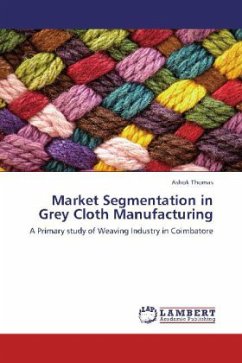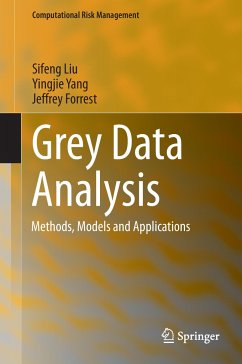
Market Segmentation in Grey Cloth Manufacturing
A Primary study of Weaving Industry in Coimbatore
Versandkostenfrei!
Versandfertig in 6-10 Tagen
39,99 €
inkl. MwSt.

PAYBACK Punkte
20 °P sammeln!
The weaving industry in India unlike other countries is characterised by a strong decentralised SSI sector and perplexed mill sector. The growth of the SSI at fabric making to garmenting has been phenomenal due to many factors including policy bias, informal nature, smaller economies of scale etc. The study concentrate on grey cloth manufacturing in the district of Coimbatore(India) where SSI have a clear monopoly in input and output markets. We try to unearth the role of segmentation in the specific sector.The study observes a clear segmentation in the output among the small and large units i...
The weaving industry in India unlike other countries is characterised by a strong decentralised SSI sector and perplexed mill sector. The growth of the SSI at fabric making to garmenting has been phenomenal due to many factors including policy bias, informal nature, smaller economies of scale etc. The study concentrate on grey cloth manufacturing in the district of Coimbatore(India) where SSI have a clear monopoly in input and output markets. We try to unearth the role of segmentation in the specific sector.The study observes a clear segmentation in the output among the small and large units in the area of study.The segmentation had its own implications in determining the dynamics of output and input markets which is translated to selling practices, intervals of selling, mode of payment activities among large and small segments. We observe segmented markets in output markets reflected on types of cloths produced, frequency of change in output, frequency of sales, channels of selling. In short, SSI in grey clth manufacturing have some internal economies of scale, added with monopoly of inferior grey cloth demanded in larger quantities.












